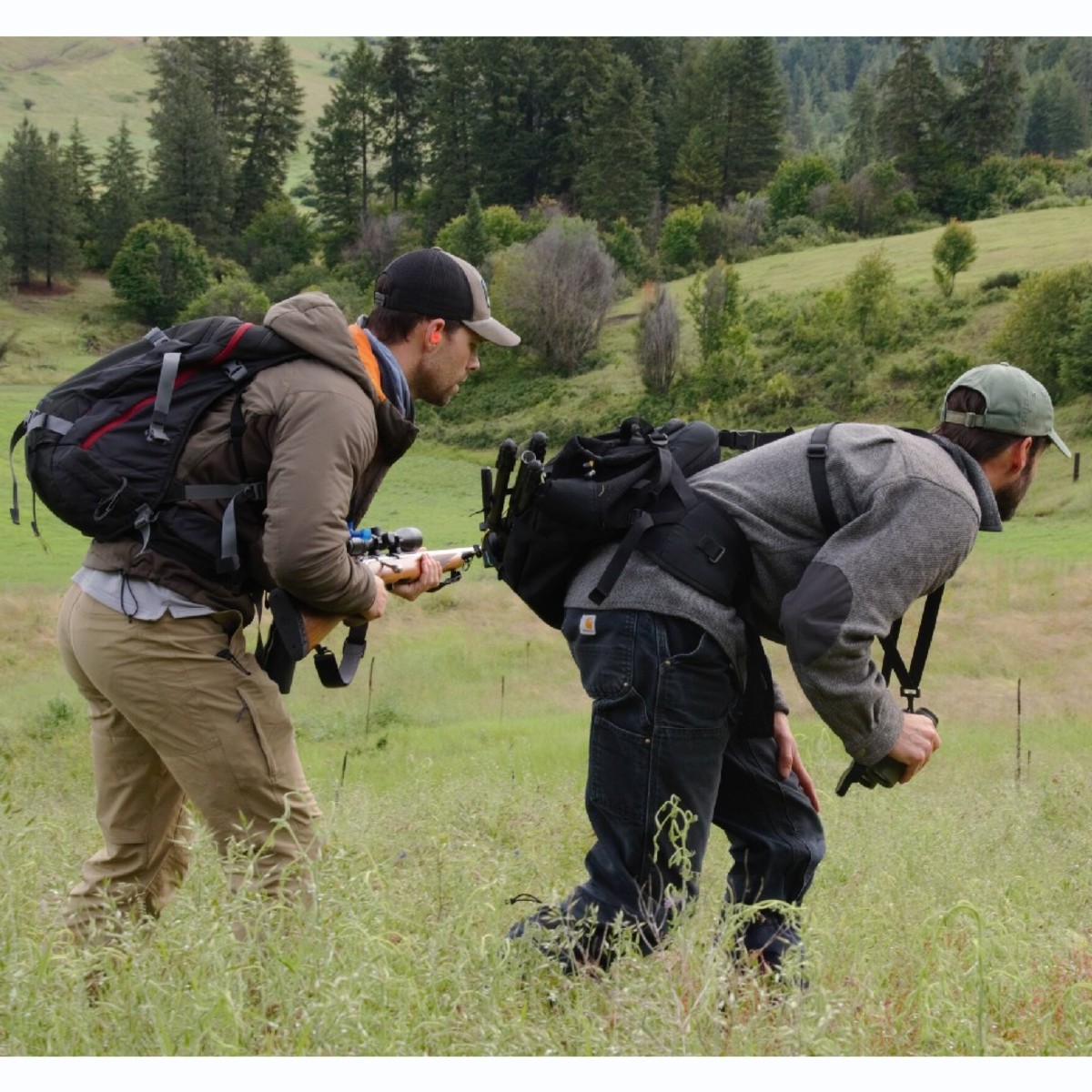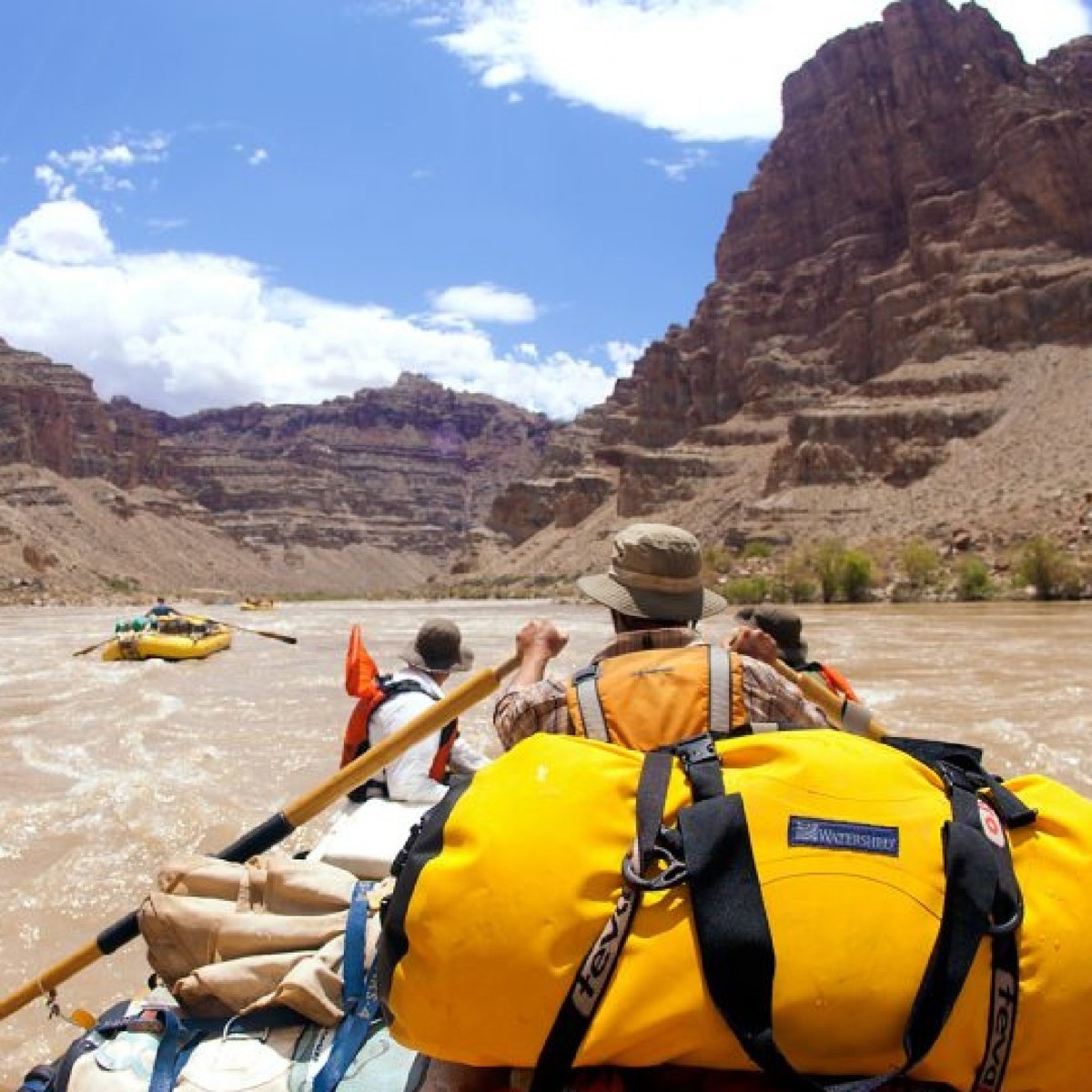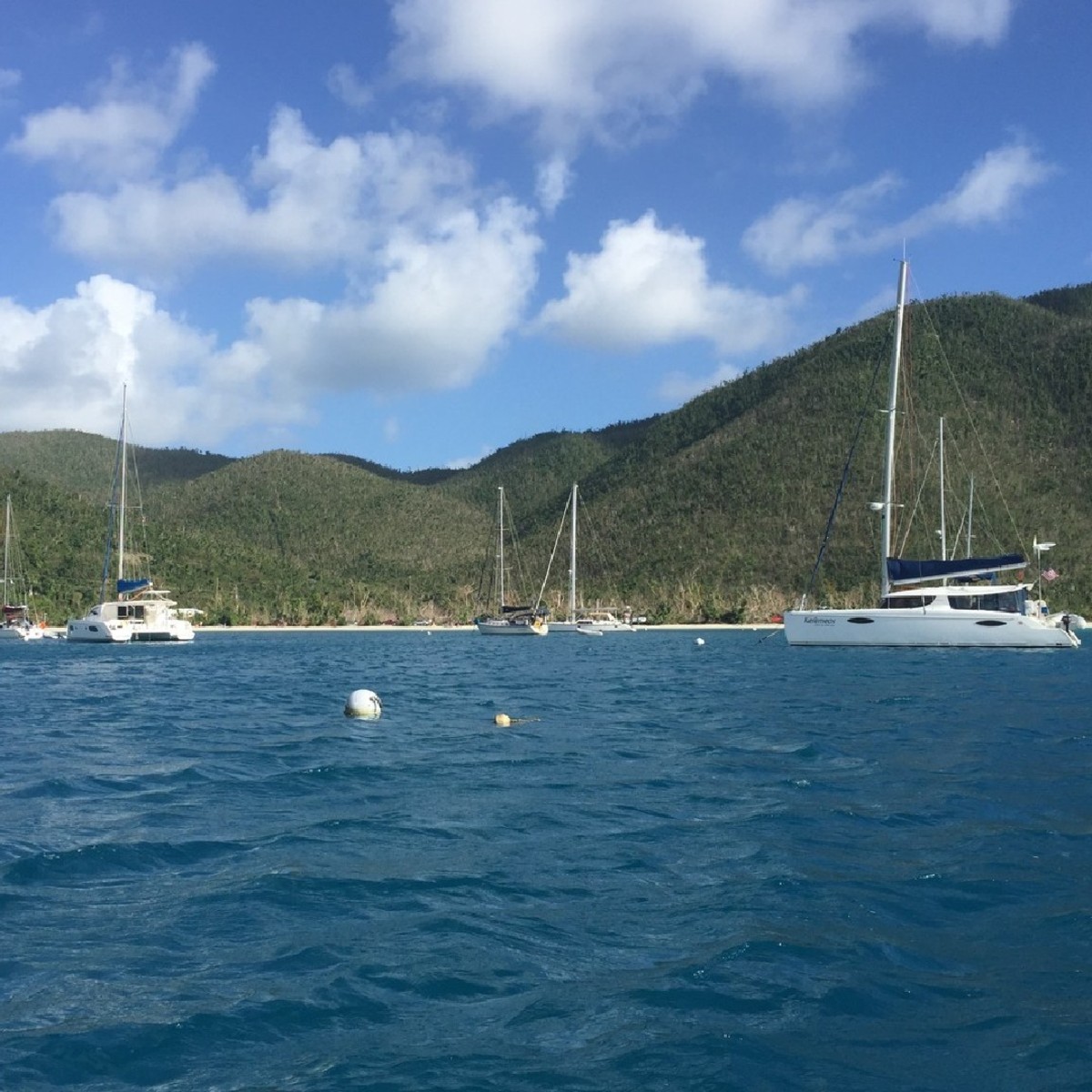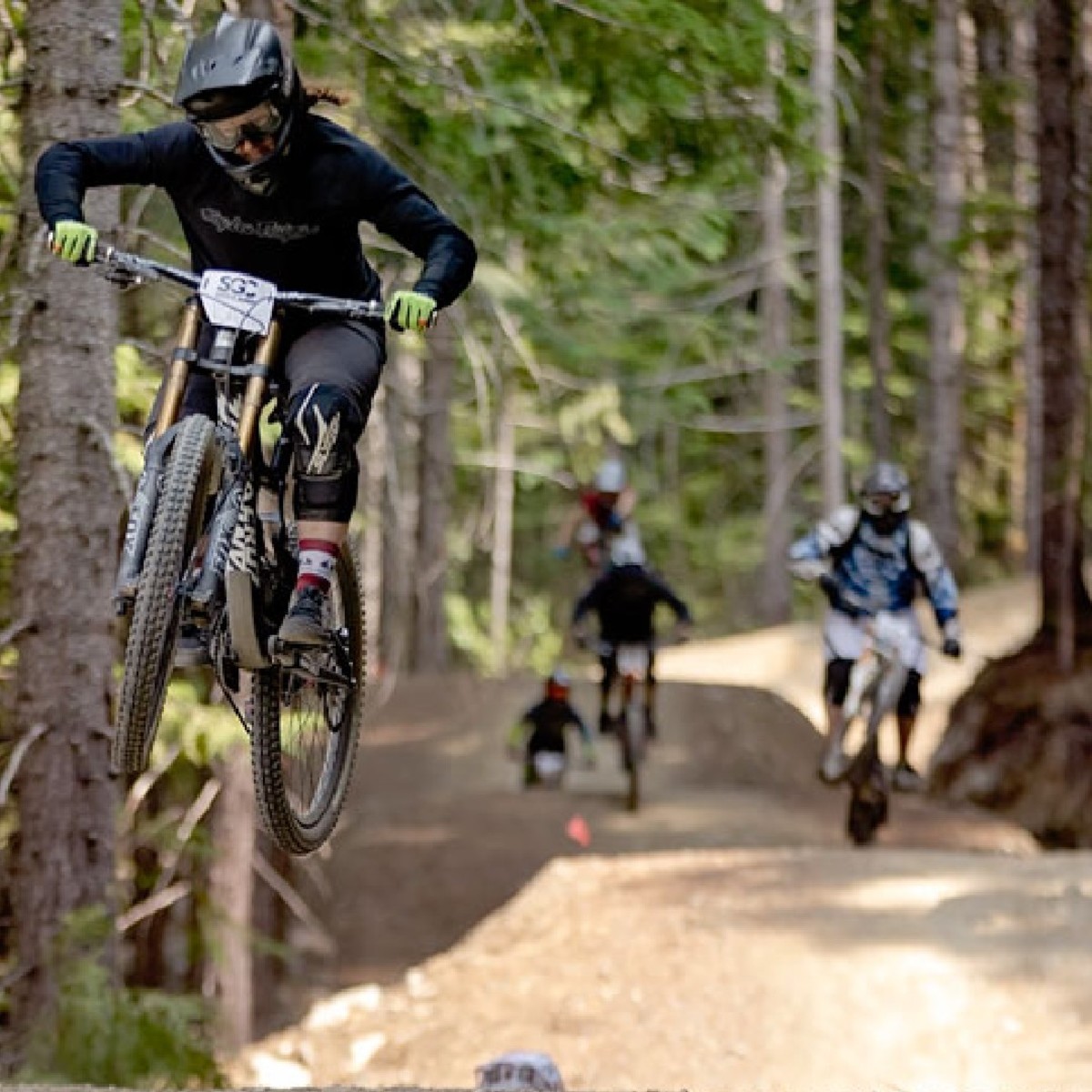Jonesing for father-son trips that pack adventure? Look no further than these schools and camps that teach hunting, sailing, and more. (Check websites for all available course dates).
1. Master the Art of Fly-Fishing
John Juracek, one of the best fly-casting teachers on the planet, squints at my reach-cast and tells me to tweak the finish with a bigger sweep of my arm. Then Juracek moves down the row of students, critiquing the others, slapping his leg with a yellow section of rod as if it were Patton’s riding crop. We’re standing on a grassy lawn beside a slow slide of Idaho’s famed Henry’s Fork river, casting into hula hoops at 20 paces.
“You must work to achieve enlightenment,” Juracek says. “It must be hard before it is easy. Or whatever.” He cracks a sly grin.
I’m here at the four-day School of Trout because when it comes to chasing fins, I need some higher ed. True, I’ve pursued fish from Patagonia to Alaska, and even caught a few of them. But my cast still calls to mind a train wreck on a four-count rhythm. I need other skills, too, to have a chance against wily trout on new rivers. And YouTube can only take a guy so far. Where better to learn than an Advanced Class taught by marquee names like Juracek, on the Idaho river—often described as the graduate school of dry fly-fishing?
Some fishermen simply want to pay a guide to lead them around by the nose. They want to rip lips, and the more, the better. They aren’t much interested in learning—about insects, about how to battle wind. School of Trout isn’t for them.
“We’re giving people the skills to be creative problem-solvers on the river,” says Todd Tanner, the school’s founder and a former guide here. “We’re trying to teach people how to think out there.”
Don’t come to this school thinking it’ll be all recess. Days start early and go late. We start each morning when the dew is still on the grass, brushing up on fundamentals of casting—the pile cast, the reach cast—under the eye of Juracek, a coach of world-champion fly casters. After that one morning, pro fisherman Jeff Currier jumps into the water to demonstrate how he combats micro-drag, that infinitesimal tug on a dry fly that makes a picky fish refuse it.
Pro tip: Try the “drag and drop” method. Aim your fly a bit more upstream and beyond the target, then drag it gently into the correct lane of water, now backed by plenty of slack.

Sometimes we climb into the river ourselves, firing casts at bright floats weighted by horseshoes. Afternoons, we head to the Henry’s Fork and put it all together, stalking the Ph.D.-holding trout of the river’s famed Harriman Ranch reach, an instructor at our hips, and the giants that rise to feed on hatching PMD’s pucker the water in slowly expanding circles.
If there’s a theme to the curriculum, it’s one I needed to hear again: Don’t pound to the river’s edge and flog away. Slow down. Notice the bugs that are caught in a spiderweb among the reeds. Listen for the slurp of a big fish taking mayflies off the bank, and where it came from.
“Observation is fishing,” says Juracek.
Each evening, we return to the TroutHunter Lodge to talk about the day over hand-cut bison ribeyes and beers, then it’s back outside to fish the evening hatch behind the lodge, or more casting practice under the instructors’ watchful eyes.
The last day, when class is dismissed, I head once more to the ranch. There, I land my first ranch rainbow. It isn’t the biggest. But I do it myself, no one at my hip this time, and using what I’ve learned. Which makes it the sweetest.
There’s only one Basic Trout Class offered in 2021 (Oct. 3-9) for $7,950 per person. You can also opt for the Advanced Dry Fly Class. There’s only one class for 2021 as well (Aug. 22-26) for $4,950. Both packages include meals, lodging, and all instruction.

2. Learn to Hunt
A lot of us today want to be in touch with where our food originates, but we don’t know where to start. The Awaken the Hunter Course from Human Nature Hunting teaches would-be hunters the skills and confidence to hunt on their own for bigger game such as deer or elk. The intensive four-day course, which is held on the company’s private land in northeastern Washington State, covers preparation, tracking and scouting for animals and how to shoot various weapons (not to mention evening talks over chef-cooked meals about what it means to be a meat-eater, today). Courses are held year-round, and autumn rifle-hunting season is brief, but the course adapts with realistic simulated hunts capped by fielding dress and butchering a sheep—which, stripped of its wool, looks much like a deer.
[$1,800-$2,400; humannaturehunting.com]
Learn More
3. Perfect Your Rafting Skills
“There is nothing—absolutely nothing—half so much worth doing as simply messing about in boats,” as Water Rat said to Mole in The Wind in the Willows. But how do you learn to mess about safely and adeptly? August whitewater company OARS offers several six- and seven-day rowing clinics on the Class II-III water of classic rivers of the West, such as Utah’s Green River and Oregon’s Rogue. Seasoned guides teach everything from how to read and row whitewater to knots to what to bring (and not bring) on a river trip (plus how to stow it). You’ll leave the week with the chops to run a basic multi-day trip on your own.
[$1,599. oars.com]
Learn More
4. (Learn to) Sail Away
A lot of us daydream of drifting among postcard Caribbean islands with friends. But a reality check: Few of us know how to sail a big boat. Blue Water Sailing School knows how to fix that dream. On its week-long Bareboat Skipper Course out of Ft. Lauderdale, offered year-round, students board a 40-some-foot sailboat on Saturday and don’t touch land for a week, sailing for Biscayne Bay in the northern Keys, learning the fundamentals needed to safely operate a larger sailboat, including knots, tacking and jibing, trimming sails, docking, and monitoring weather. It’s a lot to learn, but if you pay attention, you’ll leave with the knowledge (and certs) to be able to skipper coastal waters on your own in moderate conditions.
[From $2,595; bwss.com]
Learn More
5. Ride Your Bike Better
There may be no better place to learn how to ride a mountain bike downhill better than the famed Whistler Mountain Bike Park. Summer Gravity Camp offers three-day camps for adults based at the British Columbia resort. Opt between packages that include just camp or the option to add a lift ticket (both include coaching, priority at lift lines, and prizes from sponsors), plus additional add-ons. Or, you can go for Downhill or Enduro Camp, which focus on proper technique. Instructors who’ve won national and World Cup races teach small groups of riders of all ability levels how to improve their body position, choose the best line, corner effectively, and how to safely launch drops and jumps. Arrive in shape, and be prepared to ride your bike up to six hours a day.
[From $499; summergravitycamps.com]
Learn Morefrom Men's Journal https://ift.tt/3fJOeqs
No comments:
Post a Comment